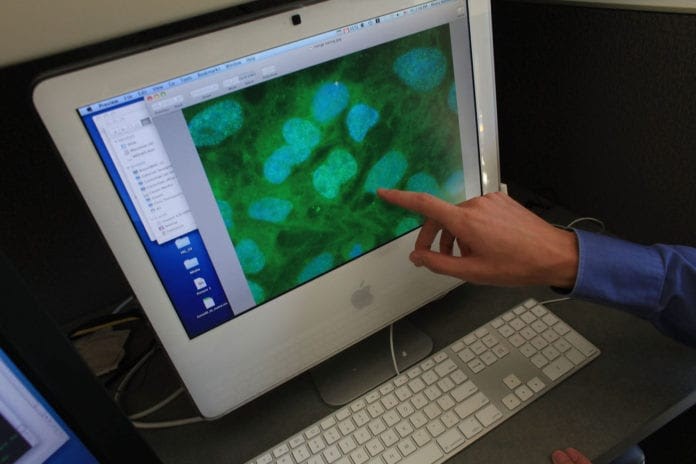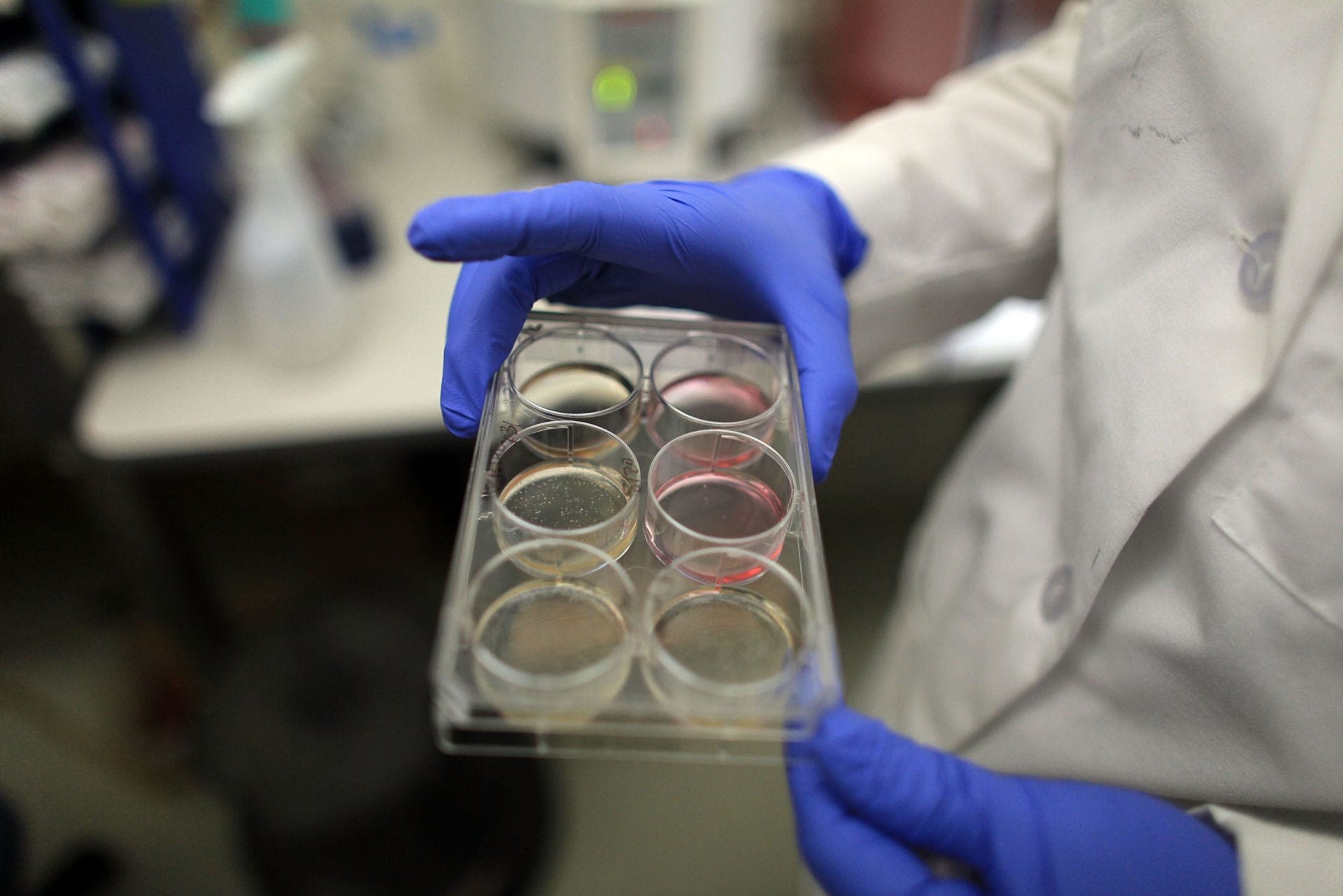Contact Admission
International Collaboration
Learn about stem cells
Stem cells were observed on a computer at the University of Connecticut Stem Cell Research Center.

We've heard a lot about stem cells recently and their magical implications. In fact, those applications are, in a nominal sense, still very far away, maybe a few decades away.
Strictly defined, stem cells are cells "origin" from which will reproduce and mutate to other types of cells, for the purpose of growth or maintenance of the body.
In animals, including humans, there are two types of stem cells, one is embryonic stem cells about 5-6 days old called embryonnic stem cells, and adult stem cells called adult stem cells. Type of stem cells from embryos can change into all the organs in the body such as heart, brain, lungs ... puff. In contrast, adult stem cells have only a relatively limited effect, producing individual cells of the organ to maintain that organ.
The words "mature" here are not necessarily only in adults but to distinguish them from embryonic stem cells. There are currently 3 types of usable adult stem cells, which are bone marow, adipose tissue, and blood cell. Blood taken from the placenta of a newborn baby, umbilical cord blood, falls into the third category. All of these types of stem cells, if used on the person himself, such as stem cells used on the same baby when needed, are in less danger than being used on others.
Use of embryonic stem cells is currently prohibited in many countries, since embryos have to be destroyed, in principle destroys life. If allowed, only within research when obtained from embryos donated to science. Therefore, only adult stem cells are allowed to be used, and, the main recognized, use is, for the treatment of leukemia and blood diseases.

A lab worker is holding a tray of stem cells at the University of Connecticut Stem Cell Research Center.
Harvesting and transplanting stem cells from the spinal cord, and fat cells are painful and inconvenient, so stem cells grown from the blood of the placenta become more common. Basically, these cells are only used for the client himself, and maybe for you, but recently some processing methods can be used for many other people. However, "malfunction," can still occur when used.
These blood stem cells, called hematopoietic stem cells, are the cells that can produce red blood cells, white blood cells, and platelets because they are immature blood cells. Therefore, using these blood stem cells to treat blood cancers, paralysis is very effective.
However, some researchers believe that these types of blood cells can be used to treat other ailments such as neurological disorders, neurodegeneration, and even autism! To date, there is not a single large-scale study that has supported these hypotheses.
Another type of stem cell of bone and cartilage origin called mesenchymal stem cell, is promising for the treatment of bone and joint diseases, muscle diseases, skin diseases. However, research results are limited. Of course, there is no research that proves that blood stem cells can be used to treat osteoarthritis.
On the market, there are now many companies that advertise blood stem cells to treat diseases, such as bronze kale, degenerative diseases of the cartilage and cartilage, and even infertility, creating eggs for women. women have a period off!
Of course will come There will come a day when, with new breakthroughs, people will be able to use stem cells to cure all kinds of diseases. A way is now being sought to convert adult stem cells back into the same capabilities as embryonic stem cells. For example, the news about the possibility of using stem cells to treat cardiovascular disease, blindness caused by damage to the retina, paralysis from trauma to the spine ... or the production of eggs and sperm from fat stem cells, is real, but still experimental.
In the meantime, experts recommend, be careful about the idea of using commercially available stem cells, especially stem cells from the blood to cure diseases. If necessary, a thorough understanding of the origin and rationale of stem cell treatment should be made before making a decision.
Dr. Ho Ngoc Minh
Other news
- How Dangerous Is Nipah Virus? Medical Alert and Urgent Health Recommendations ( 14:13 - 27/01/2026 )
- Predicting Disease from Sleep – A New Breakthrough Study ( 14:01 - 13/01/2026 )
- Medical advances predicted to break through in 2026 ( 13:54 - 12/01/2026 )
- Vietnamese medical miracles in 2025 – inspiration for medical students ( 07:54 - 07/01/2026 )
- Updating the SOFA-2 Score: A New Standard in the Assessment of Multiple Organ Failure After Three Decades ( 10:40 - 31/12/2025 )
- Home AEDs: High Life-Saving Effectiveness, but Not Cost-Effective at Current Prices ( 14:12 - 18/12/2025 )
- Artificial Intelligence and Pediatric Care ( 08:27 - 16/12/2025 )
- Applying Clinical Licensing Principles to Artificial Intelligence ( 09:36 - 08/12/2025 )
- U.S. Approves Targeted Lung Cancer Therapy Datroway ( 08:43 - 25/06/2025 )
- Therapeutic potential and mechanisms of mesenchymal stem cell-derived exosomes as bioactive materials in tendon–bone healing ( 08:38 - 23/11/2023 )


















